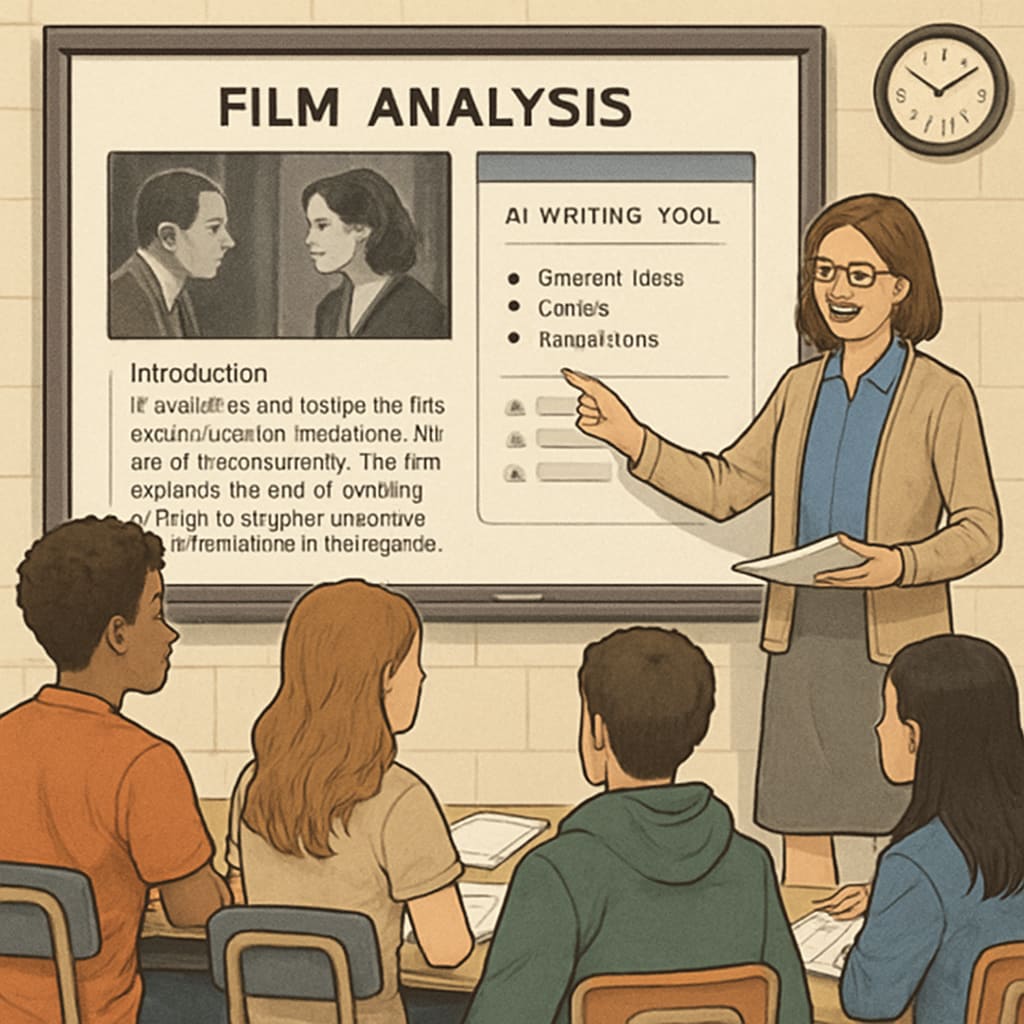In today’s digital age, fostering media literacy among students has become increasingly important. By integrating AI writing prompts, media literacy, teaching resources into classrooms, educators can equip high school students with the tools they need to critically analyze films and other media forms. These innovative AI-powered prompts have been crafted for 9–12 grade students, helping them explore the art of visual storytelling while enhancing their critical thinking abilities.
How AI Writing Prompts Transform Media Literacy Education
Artificial intelligence is revolutionizing education, and its applications in media literacy education are no exception. Traditional methods of teaching film analysis often rely on static discussion questions or textbook-based approaches. However, AI writing prompts introduce a dynamic, interactive element to learning. These tools allow students to engage with media content in structured yet creative ways, encouraging deeper understanding of visual narratives and societal messages embedded within films.
Key benefits of AI writing prompts for media literacy include:
- Encouraging students to think critically about film techniques, such as cinematography, lighting, and sound design.
- Helping students identify themes, symbols, and cultural contexts within media texts.
- Providing personalized feedback to support individual student growth.
- Promoting collaboration through group activities and AI-driven discussions.

Classroom-Tested AI Writing Prompts for Film Analysis
These AI writing prompts have been successfully tested in high school classrooms, proving their effectiveness in engaging students and enhancing learning outcomes. Designed to address various aspects of film analysis, the prompts cover topics such as narrative structure, character development, and audience interpretation.
For example, students might receive the following AI-generated prompt:
“Analyze the use of color in the opening scene of the film. How does it impact the mood and foreshadow the story’s themes? Provide specific examples to support your analysis.”
By responding to prompts like these, students gain a deeper appreciation of the creative decisions behind filmmaking. Furthermore, teachers can customize these prompts to align with specific curriculum goals or the unique needs of their students.

Integrating AI Tools into High School Media Literacy Curricula
Teachers looking to incorporate AI writing prompts into their media literacy curricula can follow these simple steps:
- Identify learning objectives: Determine what skills or knowledge students should gain from the activity, such as understanding visual storytelling or honing critical analysis abilities.
- Choose appropriate tools: Select AI platforms or applications specifically designed for educational purposes, ensuring ease of use for both students and teachers.
- Develop structured activities: Create lesson plans that integrate AI prompts seamlessly into existing curricula, balancing AI-driven tasks with traditional teaching methods.
- Provide guidance and feedback: Support students as they navigate the AI tools and offer constructive feedback to help them improve their analytical skills.
By following these steps, educators can create engaging and effective lessons that leverage the power of AI to enhance media literacy education.
The Future of AI in Media Education
As AI continues to evolve, its potential applications in education will expand even further. In media literacy, AI can be used to analyze student responses, suggest improvements, and even recommend films that align with learning goals. Additionally, AI’s ability to adapt to individual learning styles makes it a valuable tool for diverse classrooms.
For educators and students alike, embracing AI technology promises a future where media literacy education is not only more effective but also more engaging. By integrating AI writing prompts into teaching, we can empower the next generation with the skills to critically assess the media they consume and create.
External Resources:
Learn more about media literacy at Media literacy on Wikipedia. Discover how AI is transforming education at AI in education on Britannica.


